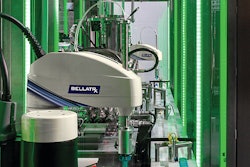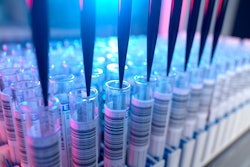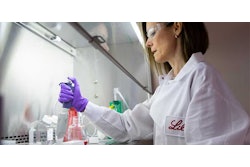To reduce wastewater surcharges and the company’s carbon footprint, August Schell Brewing Company (Schell’s)–Minnesota’s largest brewery–participated in the 2020 MnTAP Intern Program. This outreach program at the University of Minnesota places highly qualified students in facilities for three months to focus on pollution prevention and energy efficiency solutions. Schell’s welcomed its MnTAP intern, Mason Balster, an environmental engineering major, to its team.
By reducing key characteristics of the brewery’s wastewater stream, phosphorous, biological oxygen demand (BOD), and total suspended solids (TSS), Schell’s saw great potential for savings on wastewater surcharges. The commitment by Schell’s serves as a key contribution to results of MnTAP’s Upstream Nutrient Reduction Project, supported by the Legislative-Citizen Commission on Minnesota Resources (LCCMR).
Solutions proposed by Balster were:
Reducing Wastewater Loading which was explored through two avenues:
- Incorporation of a spiral brush filter from Digested Organics to remove solids from the waste stream and reduce organic loading. This would remove 50% of BOD and up to 50% of TSS.
- Use of an anaerobic digestion treatment system developed by Purpose Energy utilizing bacteria to break down organic waste and produce renewable energy in the form of biogas. This system is estimated to reduce organic loading by 99%, removing 430,000 lbs of BOD, 240,000 lbs of TSS, and 4,000 lbs of phosphorus. It would also generate 700,000 kWh of electricity. Between the savings on electricity and sewer surcharges, the brewery would see net savings of $190,000 annually.
Recycling Packaged Products by shipping them to E-Z Recycling where recyclable solids are separated from high strength liquids. There, glass and aluminum are recycled, and liquids are directed to either an ethanol plant or anaerobic digester for renewable energy production. This option would reduce BOD loading by 9,600 lbs per year. Between savings on labor and sewer surcharges, net savings would amount to $4,200 annually.
Reducing Sample Cooling Water to 15 minutes per each of the four samples taken throughout the brew. These samples must be cooled from a temperature near the boiling point by using cold water pumped through an outer jacket. The current process uses about 274,000 gallons of water a year. Reducing the time the water runs per sample should save the brewery 200,000 gallons of water a year and $1,000 annually.
Staggering the Greensand Filter Backwash Schedule, which reduces water hardness through removal of metal concentration, in order to lower how much water is lost to the drain in the daily recharge process each year, currently amounting to 1,600,000 gallons. By adjusting recharge frequency to a staggered schedule, the brewery will save 550,000 gallons of water and $2,700 annually.
Using Non-Phosphorus Cleaners instead of the phosphoric acid-based cleaners currently used by the company, which result in 650 lbs of phosphorus sent down the drain each year. Two phosphorus free alternatives from the brewery’s same supplier were investigated. Though these alternatives are more expensive at first glance, all 650 lbs of phosphorus drained would be eliminated and thus the cost of phosphorous loading, which would save the company $1,400 annually.
Of the brewery’s experience with MnTAP, director of operations at August Schell Brewing Company, Kyle Blair, says, “Mason was a great addition to the Schell’s Brewery team. His energy and passion for continuous improvement brought new life to our sustainability efforts. We were very impressed with the improvements that Mason helped incorporate to the brewery’s processes and the next steps he provided us to further our sustainability efforts.”
Balster’s project should help the brewery save close to $200,000 per year.
Learn more at MnTAP’s website or download the 2020 Intern Program summary here.
Other articles you may be interested in:
PepsiCo Pledges Net-Zero Emissions by 2040
Smithfield Foods: Sustainable Processing Practices for Food Brands.
Danone North America Regenerative Agriculture Program Helps Mitigate Climate Change























